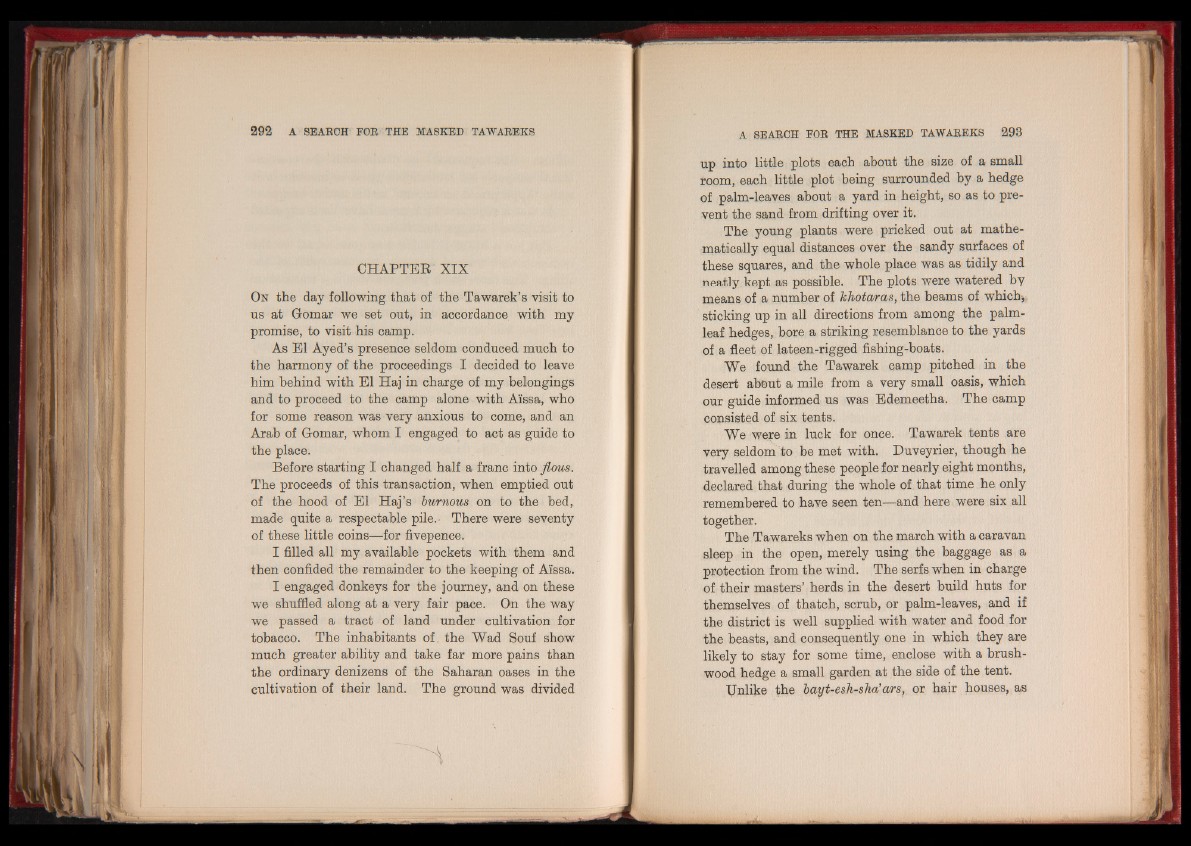
CHAPTER XIX
On the day following that of the Tawarek’s visit to
ns at G-omar we set out, in accordance with my
promise, to visit his camp.
As El Ayed’s presence seldom conduced much to
the harmony of the proceedings I decided to leave
him behind with El Haj in charge of my belongings
and to proceed to the camp alone with A'issa, who
for some reason was very anxious to come, and an
Arab of Gomar, whom I engaged to act as guide to
the place.
Before starting I changed half a franc into flous.
The proceeds of this transaction, when emptied out
of the hood of El Haj’s burnous on to the bed,
made quite a respectable pile. There were seventy
of these little coins—for fivepence.
I filled all my available pockets with them and
then confided the remainder to the keeping of Aissa.
I engaged donkeys for the journey, and on these
we shuffled along at a very fair pace. On the way
we passed a tract of land under cultivation for
tobacco. The inhabitants of. the Wad Souf show
much greater ability and take far more pains than
the ordinary denizens of the Saharan oases in the
cultivation of their land. The ground was divided
up into little plots each about the size of a small
room, each little plot being surrounded by a hedge
of palm-leaves about a yard in height, so as to prevent
the sand from drifting over it.
The young plants were pricked out at mathematically
equal distances over the sandy surfaces of
these squares, and the whole place was as tidily and
neatly kept as possible. The plots were watered by
means of a number of khotaras, the beams of which*
sticking up in all directions from among the palm-
leaf hedges, bore a striking resemblance to the yards
of a fleet of lateen-rigged fishing-boats.
We found the Tawarek camp pitched in the
desert about a mile from a very small oasis, which
our guide informed us was Edemeetha. The camp
consisted of six tents.
We were in luck for once. Tawarek tents are
very seldom to be met with. Duveyrier, though he
travelled among these people for nearly eight months,
declared that during the whole of that time he only
remembered to have seen ten—and here were six all
together.
The Tawareks when on the march with a caravan
sleep in the open, merely using the baggage as a
protection from the wind. The serfs when in charge
of their masters’ herds in the desert build huts for
themselves of thatch, scrub, or palm-leaves, and if
the district is well supplied with water and food for
the beasts, and consequently one in which they are
likely to stay for some time, enclose with a brushwood
hedge a small garden at the side of the tent.
TJnlike the bayt-esh-sha’ars, or hair houses, as